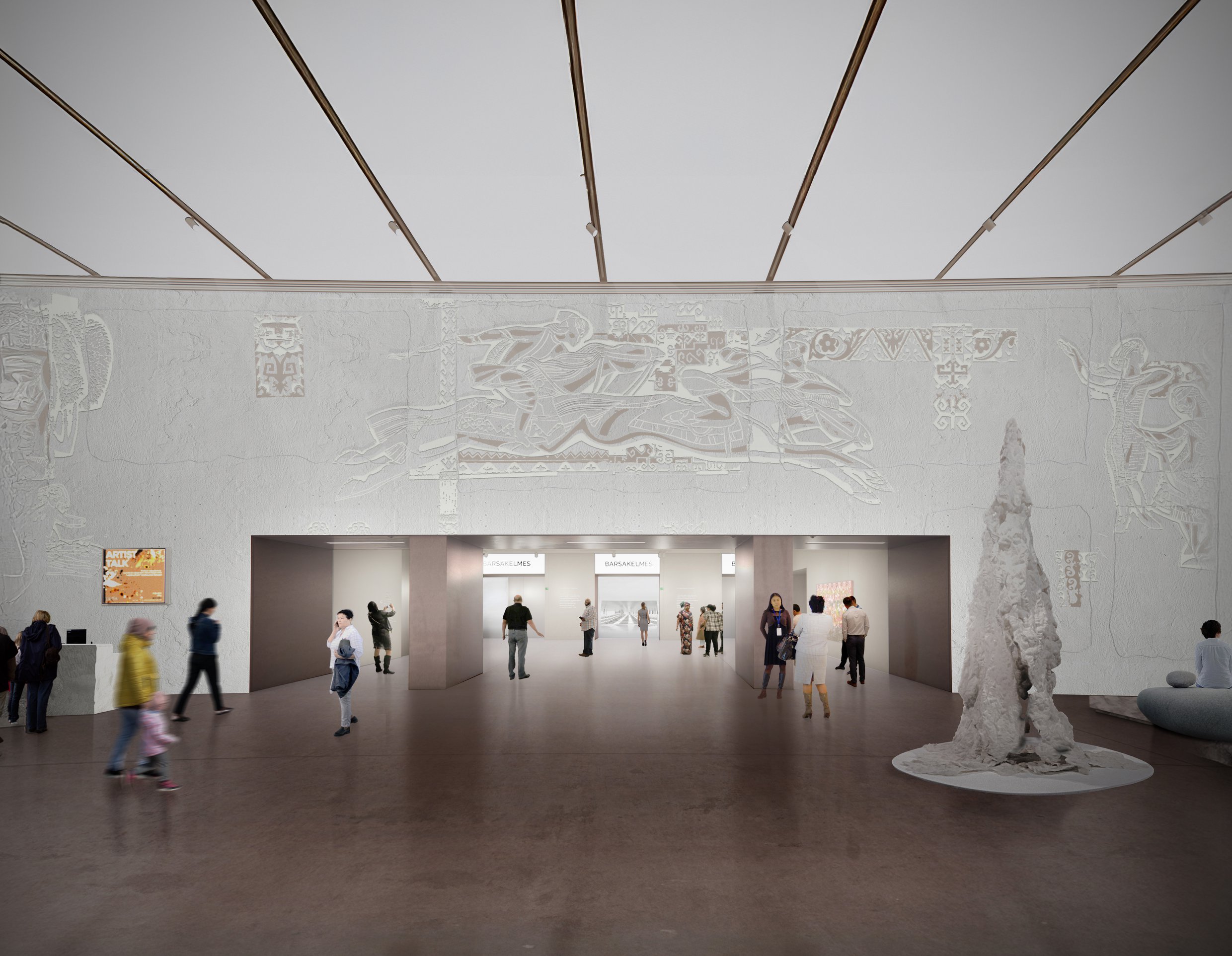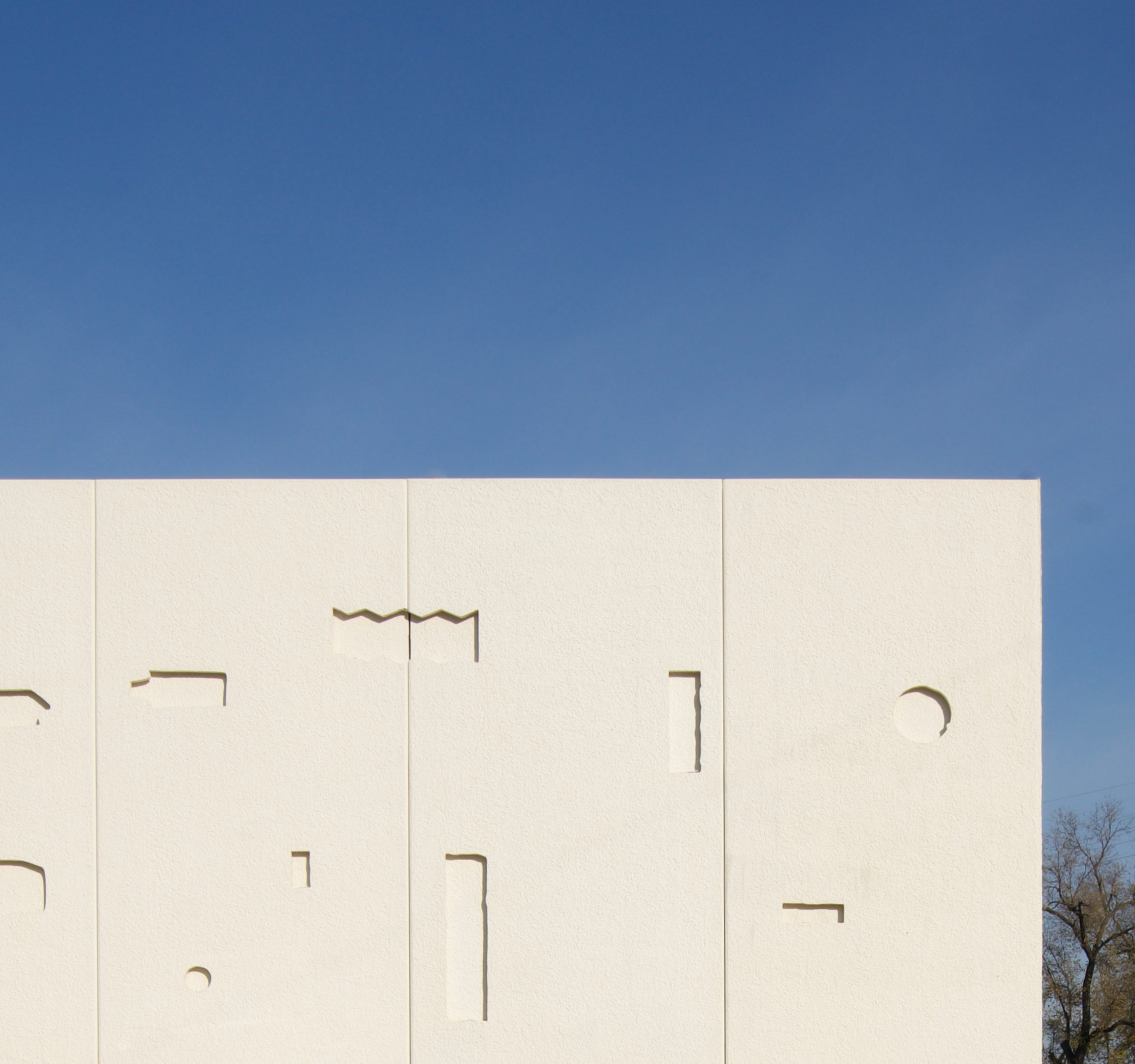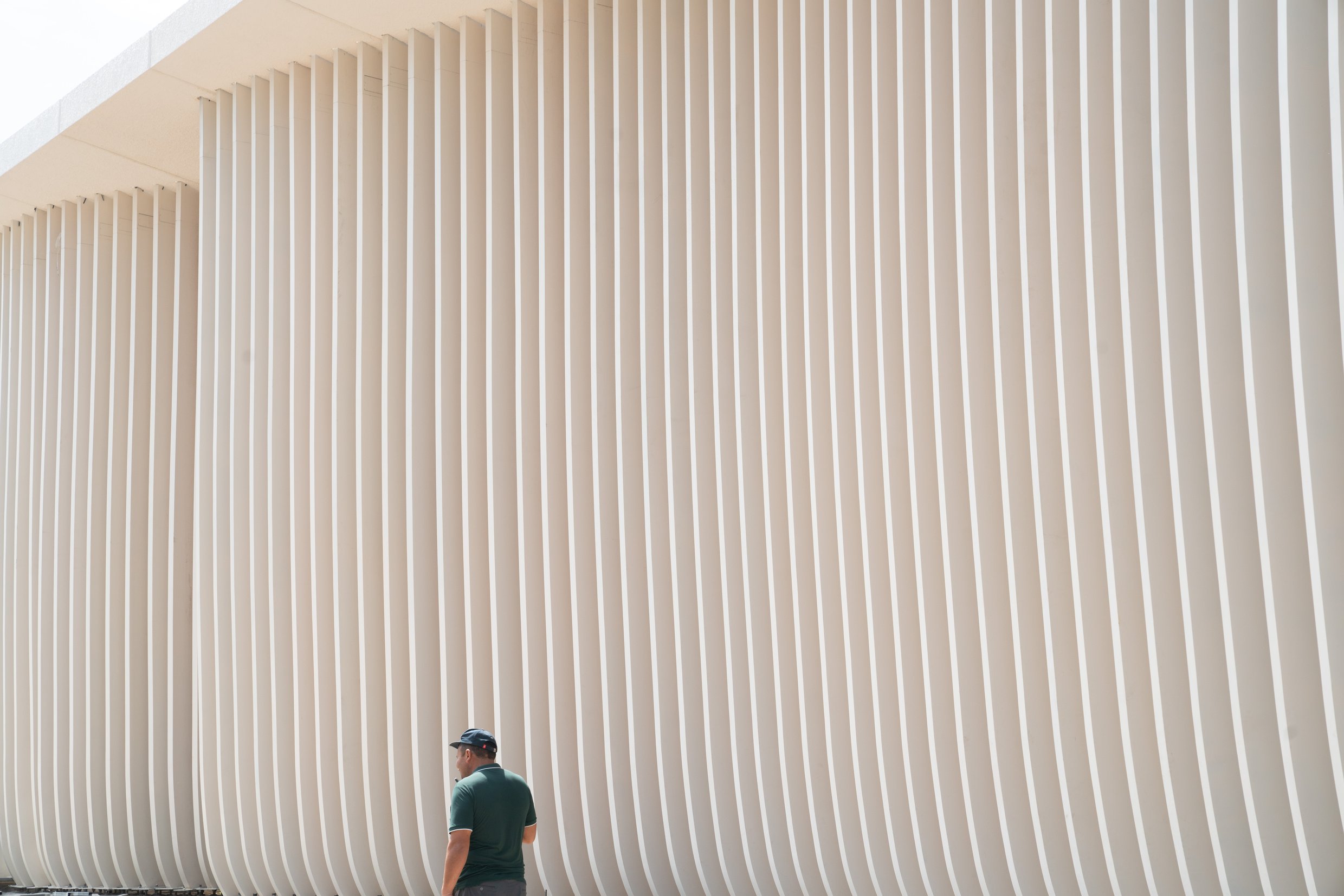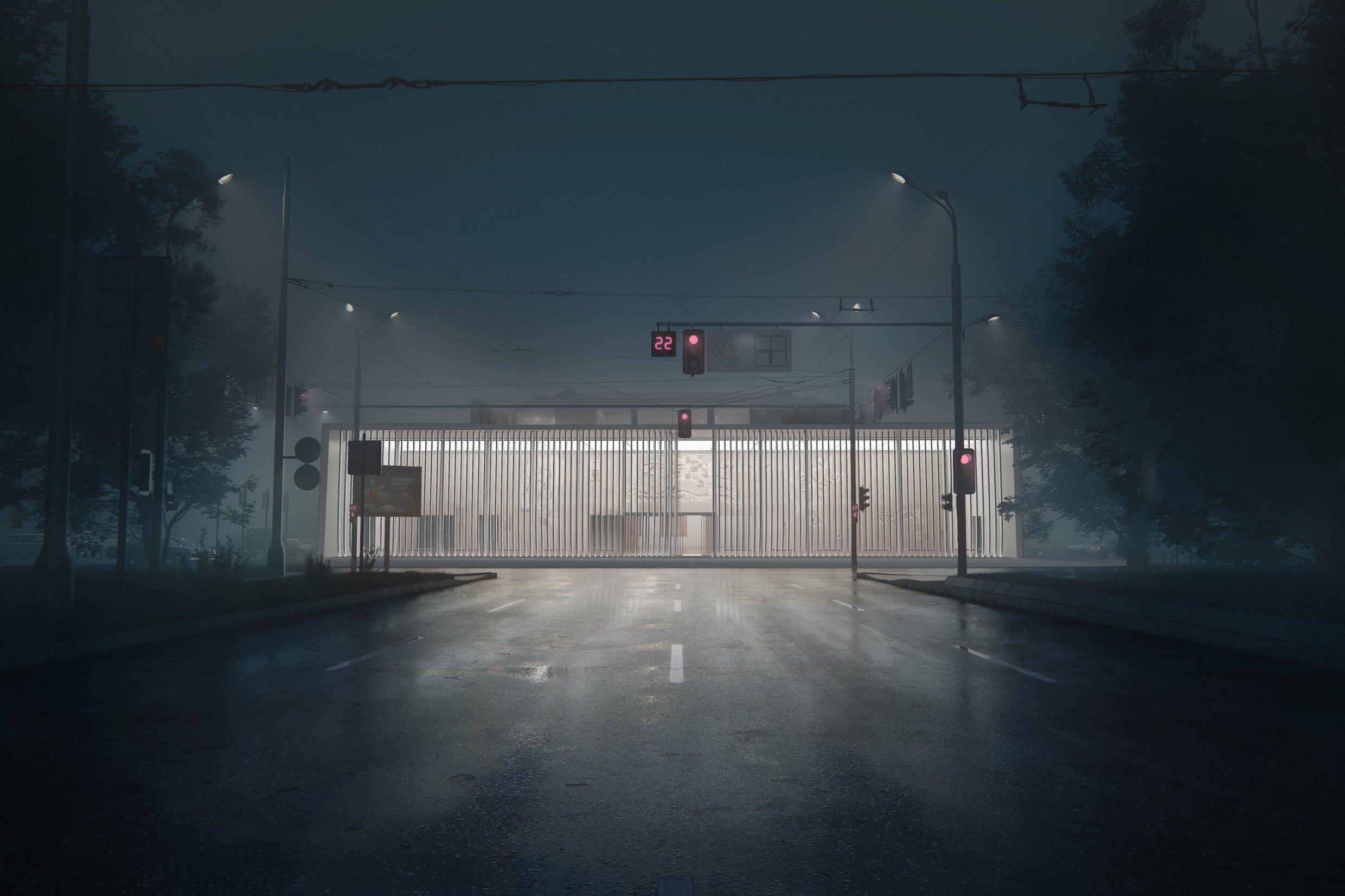Tselinny Center of Contemporary Culture Announces Opening

Tselinny Center of Contemporary Culture Announces Opening and Programme
Kazakhstan’s first independent cultural institution opens in May 2025 in its new permanent home, the Soviet-era former Tselinny cinema, transformed by British architect Asif Khan.
- Tselinny Center of Contemporary Culture is an unprecedented international platform for Kazakh and Central Asian art and artists
- A multidisciplinary opening programme of exhibitions, performances and discussion, titled Barsakelmes, takes place from May 22 until 8 June 2025
- Tselinny works closely with local and regional artistic communities to draw on the complex historical and geopolitical layers of Central Asia and forms a platform for open reflection and critical debate with emerging theorists, scholars and artists
- Other highlights of the opening year include the second edition of the Korkut Sonic Arts Triennale, from 6 September to 1 November 2025
Tselinny Center of Contemporary Culture, a leading contemporary art institution in Central Asia, opens in a new permanent venue in May 2025. Transformation of the venue, formerly the largest Soviet cinema in Central Asia, began in early 2018 under the direction of British architect Asif Khan. The renovation has transformed the building into a multifunctional public space which will host local and international artists and stage performances, concerts, film screenings and public events.
Operating since 2018, Tselinny Center of Contemporary Culture is unprecedented in terms of the international platform it provides for artists in the city and the region. With an itinerant program of exhibitions, symposia, performances and publications across Kazakhstan and internationally, the Center forms a platform for open reflection and critical debate about and with emerging theorists, scholars and artists, bridging the gap between institutional work and local society.

The Center’s focus is on presenting projects which tell the story of Kazakhstan’s search for identity. Drawn from the name of the original cinema, “Tselinny” references ‘целина / tselina’, an umbrella Russian term for land designated as underdeveloped yet highly fertile. The Soviet “Tselina”, or Virgin Lands Campaign, of the 1950s and 1960s saw the steppes of northern Kazakhstan as a “barren space” ready for cultivation, industrialisation and resettlement to solve the Soviet agricultural crisis – while the Kazakh people, conversely, saw the Kazakh steppe (the largest of its kind on earth) as sacred and at the core of Kazakh identity, allowing the nomadic movement of people, animals, goods and ideas for millennia. The loss of this way of life, following the Virgin Lands Campaign, was one of many events which permanently altered the relationship of Kazakhs with their vast landscape and natural resources.
This clash between two visions and the aftermath of the major ecological failures of the socialist experiment - the Aral Sea disaster, soil erosion, displacement of local populations and mass pollution - has left a lasting effect on how this past is remembered and dealt with in contemporary Kazakhstan.
Issues of climate change – as well as local, Central Asian cosmologies and native knowledge about the environment - occupy a central role in Tselinny’s mission, with a focus on presenting work related to Central Asia's nomadic heritage, the deeply rooted practices of harmonious co-existence with nature and the philosophies of non-waste and no-harm.
Since 2018, the Centre has developed several initiatives – educational and publishing programs, and deep engagement with the regional art scene – to sustain the discussion of local knowledges, cosmologies, mythologies and narratives about the environment. Central Asian ecological themes are at the core of its work, practice, and engagement with the public.

Tselinny cinema and building transformation
The Tselinny cinema was built in 1964 to a standard Soviet design for large panoramic cinemas. The architecture of the building followed Soviet principles of rational Modernist design, avoiding anything deemed “excessive”, which resulted, in the case of Tselinny, in a simple concrete structure with a public-facing glass façade. Inside, a large public foyer was framed by a monumental sgraffito depicting idealised scenes of traditional Kazakh life by the Russian-born artist Evgeny Sidorkin ((1930-1982). Upon its completion, the building immediately became one of the most popular cultural venues in Soviet Alma-Ata (now Almaty), a significant landmark and an important centre of urban life.
Asif Khan’s renovation of the building, begun in 2018, builds on the public and architectural legacy of the cinema while embracing its new role as a space for inspiration and collaboration.
The new design largely preserves the concrete frame and massing of the building and retains its position in the city of Almaty. Sidorkin’s original sgraffito - thought long lost, then rediscovered behind plasterboard with heavy damage from Tselinny's previous renovation works in the 2000s – has been carefully preserved, but as a gently muted backdrop for new artforms.
The original building's structure was found to be in unsafe condition and did not meet seismic safety standards, however the institution and design team were able to strengthen and preserve as many parts of the building as possible. The auditorium volume has been seismically strengthened and largely retains its original external appearance, while the foyer and wings have been given a new visual and material palette as their complete rebuild, due to seismic safety, was required. This enabled level access to across the entire ground level of the building and landscape for the first time.
The new envelope of the foyer building, made of fibre-reinforced concrete panels, is enwrapped with a cloudscape of petroglyphs, some of which are punctured into it as windows, while others articulated in relief. It retraces the ancient Kazakh forms found in Sidorkin’s mural but, rather than positioning them as exotic markers of Kazakh history, reimagines them as a basis of an abstract language of the future. The glass entrance façade is retained and rebuilt, but a new public-facing layer is added. With an aim to reconnect the site with indigenous creative forces, Khan has looked to nomadic cosmology – specifically, the spirits of Tengri (sky) and Umai (earth). The new façade is a porous cloud-like form meeting the ground, creating a softening layer of whiteness which visitors walk through to enter the building. Working in harmony with the glass behind, its sweeping steel fins allow the foyer to emanate light and invite visitors in. The new frontage creates a passage and transition between the city and the building, between the past and the future, between the earth and sky. The new design acknowledges and builds on the past to suggest another kind of future, both in material-formal details and its concept, providing a new horizon for the city and its inhabitants.

Behind the new facade, the building retains the large public foyer with its newly restored mural. At the core of the building is a vast auditorium with an 18-meter ceiling; and its reconstructed wings house a “Capsule” gallery, learning “Atelier” and Library and the Tselinny Bookshop and offices. A new glass ribbon of windows and entrances wrap the auditorium at ground level, connecting the once-dark cavern to sunlight, landscape and Nikolsky Park beyond. A terrace and a rooftop restaurant create new public spaces designed to echo Almaty’s historic Broadway: a neighbourhood of parks, squares and famous landmarks that are definitive of the city’s golden era as the capital of the Kazakh Soviet Socialist Republic. The newly reconfigured interiors make space for exhibitions, workshops, events and social life, for co-existing and co-creating.
For further information visit: https://www.tselinny.org/en
The Tselinny Center of Contemporary Culture in Almaty, a CIMAM Patron since January 2024, is committed to fostering global dialogue in the arts. As part of its support for the museum community, Tselinny participates in CIMAM’s Free Admission Program, offering complimentary entry to all CIMAM members.